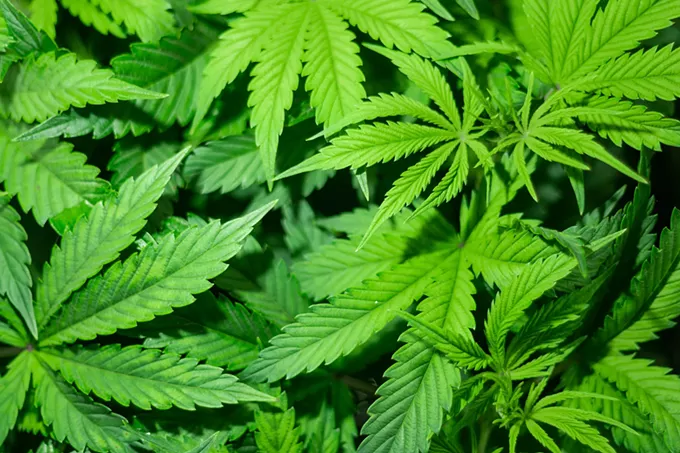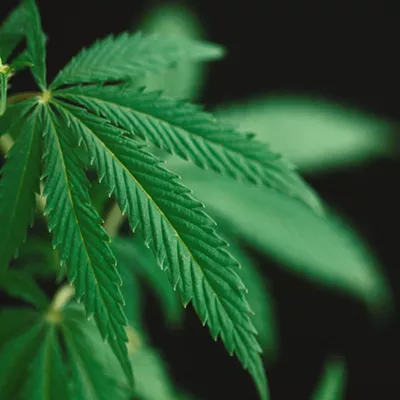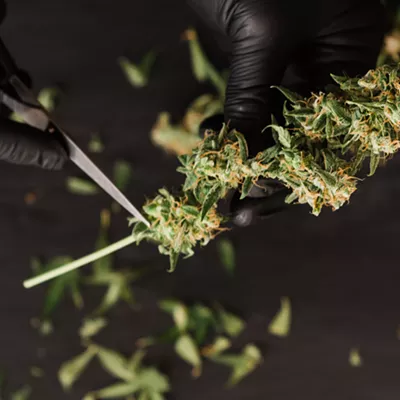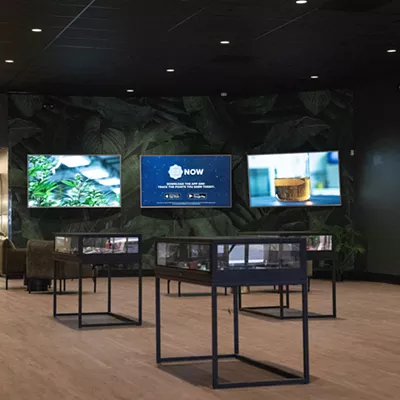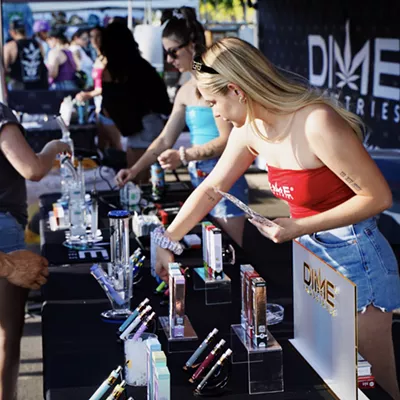As the 2022 Arizona legislative session winds up its first month, cannabis “ambassadors” have spent the better part of this week taking arguments to legislators. Cannabis bills that were introduced are making their way to various committees to be tweaked or gutted depending on the moods of lawmakers.
For the cannabis world, that means the Arizona branch of the National Organization for the Reform of Marijuana Laws is conducting its second COVID-inspired lobby week, which (thanks to the pandemic) has replaced lobby day for the consumer advocacy organization.
“NORML’s role continues to be fighting for good legislation on behalf of Arizona’s cannabis consumers,” said Arizona NORML’s political director Jon Udell. “When it comes to the cannabis law, the dispensaries have the ADA to look out for them, but who does the consumer have? They’ve got really nobody except for NORML. So we tried to speak their voice down at the Capitol to policymakers to make sure that they’re apprised of the consequences all their cannabis bills will have on consumers.”
The Arizona Dispensary Association is not the only other group watching the process. Some individual marijuana business owners are hiring their own lobbyists, and others, such as operators of testing labs, are keeping an eye out for their own self-interests as well.
For the past few months, NORML has reached out to the cannabis community in an effort to train citizens on the intricacies of the legislative process and navigating the azleg.gov website.
This week, efforts have been focused on 48 meetings scheduled with legislators of both parties who have proposed bills so far in this session. Not nearly as many MJ bills have dropped this year as last year, perhaps because Republican lawmakers are busy restricting voting rights, undermining public education and trying to make abortion illegal. But the six that have been proposed will continue to shape the way Prop 207 is enforced.
Back in late-January, the Weedly introduced its readers to three bills that dropped early in the session, but since then, three more have been proposed. Surprisingly, not all of them are bad.
What’s Dropped Since Our Last Report
SB1402, sponsored by Sen. David Gowan (R-LD14), allows the 13 rural dispensary licenses awarded last April to become dual-use licenses.
Way, way back in April 2021, the Arizona Department of Health Services, which oversees both the medical and adult-use marijuana programs, created 13 new licenses to be assigned to counties that did not have dispensaries in order to increase access for residents in rural parts of the state.
The licenses are for adult-use “establishments” only, which means that medical marijuana patients in those counties would still have to drive many miles to get their medical-grade gummies—i.e. high potency—or resort to the “unregulated” market.
Additionally, patients in those communities would have to pay more for their medicine, given the 16% state tax and whatever local taxes are added to recreational purchases.
“You can’t get high-potency edibles and you can’t buy products without the excise tax,” Udell said. “That’s not good for patients and it’s also not good for the license holders who are being treated as a second class tier of licenses.”
Udell said that the way things are now, dual-license dispensaries in a town with one of the “backfill” licenses have a competitive advantage because of that dynamic and that it will also affect the forthcoming social equity licenses.
“This bill doesn’t expressly cover social equity licenses but there should be an amendment or another bill that does because a lot of the same issues are in place with those as well,” he said. “As a patient, it’s in my rational economic self-interest to drive the extra distance right past the social equity dispensary to the MMJ dispensary to avoid taxes and get high potency edibles: You’re going to be really screwing social equity dispensaries out of the 300,000 medical marijuana patients in Arizona.”
The bill passed the Senate Health and Human Services committee on Feb. 2 with a 6-2 vote.
HB2007 was introduced by Rep. Rodriguez (D-LD27) who has since resigned his position in the legislature to run for state attorney general.
The bill would allow school administrators to refer students with violations of drug–free school zones to attend an alternate program for at-risk students rather than reporting them to law enforcement.
“There is good intention behind this bill in attempting to keep students from being referred to law enforcement regarding drug violations,” Arizona NORML director Mike Robinette wrote in an email. “We support this bill but it has not been assigned to committee yet.”
SB1715 is a big one that could have a profound effect on both the cannabis and CBD markets. The bill, sponsored by Sen. Gowan and co-sponsored by Sens. Sonny Borelli (R-LD5) and Rebecca Rios (D-LD27), would ban hemp-derived Delta 8, Delta 10 and a variety of other hemp derived cannabinoids, possibly putting legitimate commercial outlets out of business.
Delta 8 is something of a hybrid of CBD and the Delta 9 cannabinoid that has a mild psychoactive effect on patients who use it.
“In theory, for patients, it could be something that helps them reap the medical relief for their body without having the kind of a head high that could stop them from really performing their job at a high level or just doing whatever they’re doing in their daily life,” Udell said.
The bill is receiving a lot of attention from the bigger players in the weed industry who want to keep non-cannabis products out of the market as a matter of self-interest.
Should it pass, manufacturers of hemp products would likely be put out of business due to cost increases for cannabis raw materials. Hemp-derived products are not subjected to testing that is done in the marijuana industry.
Arizona NORML has not taken an official position on this one.
Reminders
Those bills joined the three previously reported on in the Weedly, which we reiterate here.
HB2082, sponsored by Joanne Osborne (R-LD13), would not allow dispensaries to offer samples to customers, but also brings back an unpopular attempt to stifle dispensary advertising. It can be seen as another effort to continue to stigmatize legitimate cannabis businesses.
It would not allow the distribution of free samples at dispensaries or the sale of weed to anyone who appears to be intoxicated.
Those against the bill say that it could unfairly target patients with conditions that might be seen as intoxication, who would then not be able to purchase needed medicine.
“We certainly don’t want to see any patient denied their medicine over this clause,” Robinette stated. “We also don’t agree with the bill only allowing the sponsorship of events that are attended by those 21 years old and older. This type of restriction certainly doesn’t apply to events with alcohol sponsorship so we don’t feel that marijuana sponsorship should be any different.”
The bill passed the Health and Human Services Committee on Jan. 24 by a 6-3 margin and also passed the Rules Committee 5-3 on Jan. 31.
HB2545, introduced by Representatives Kevin Payne (R-LD21) and David Cook (R-LD8), attempts to prohibit recipients of social equity licenses to sell the license within 10 years. If they do, the license would have to go to another individual who qualifies for the program.
“NORML has concerns about this bill and the unintended consequences that could have on social equity applicants’ abilities to obtain capital and eventually retire,” Udell said.
HB2260, introduced by Representatives Espinoza (D-LD19) and Andrea Dalessandro (D-LD2), seeks to add autism spectrum disorder and post-traumatic stress disorder for veterans as qualifying conditions for an Arizona medical cannabis
certification.
This bill is a reprise of HB2154, which died in the 2021 session.
“We fully support the addition of Autism Spectrum Disorder and PTSD for veterans to the list of qualifying conditions,” Robinette stated. “However, there is language [in] this bill relative to physicians recommending the potency, frequency and quantity of marijuana use for patients under 18 years of age that we cannot support. Furthermore, this language puts an unreasonable burden on parents in that a physician must assess a qualified patient on a monthly basis until it is determined that the patient is taking a stable dose.”
This bill has not been assigned to committee yet.
Lobby week will be nearing an end by the time this edition of Weedly hits the (real and virtual) stands, but the legislative session will continue for several more months before it finally grinds to the end. No one knows how things will shake out, but as consumers and voters, it is important for our elected leaders to hear our voices.
There are many ways to do this, from checking the daily legislative agendas as azleg.gov to signing up for the request to speak (RTS) system that allows a simple up or down vote the bill’s sponsor can see as a way of gauging public support for proposed legislation.
Arizona NORML can offer assistance through its website, at arizonanorml.org or Facebook page at www.facebook.com/NORML2.0.
“We encourage our volunteers to continue to make their voices heard on bills through RTS ,” Robinette said. “We will also use letter campaigns when needed to emphasize support or opposition of bills with legislators. People can also contact legislators in their district directly through email or phone calls. This is particularly powerful in that the legislators would be hearing from actual constituents in their district.”
ADHS wins lawsuit.
Maricopa County Superior Court Judge Randy Warner dismissed Acre 41’s lawsuit filed against ADHS last week, clearing the way for the social equity lottery that will take place within the next few months.
“We were always concerned that the influence of the MSO’s (multi-state operators) would be too great to overcome,” Celestia Rodriguez, a principal in Acre 41, stated. “People of color have very rarely been able to get justice in the courts because we know the system is rigged. We will continue to try nevertheless.”

